
What Is Heartburn?
Heartburn gets its name from the feeling you have when it is acting up. There is a very literal sensation that your heart is on fire. Also known as acid reflux and gastroesophageal reflux disease, heartburn is caused by looseness in the esophageal spinchter, at the bottom of the throat, allowing acid to travel upward from the stomach. About 40% of Americans experience heartburn occasionally. Epidemiologists estimate that between 7 and 10% of Americans experience heartburn symptoms every day and let their doctors know. Many people treat the condition with antacids and other over the counter treatments, so it is likely than even more people have the disease than the experts estimate.

What Causes Heartburn?
Heartburn can be considered a digestive "plumbing problem." The stomach is a "tank" for acid and food. The esophagus is a "pump" that delivers food to the stomach, but that is supposed to run only one way. The lower esophageal sphincter is a "valve" between the esophagus and the stomach that keeps the contents of the stomach inside. If any part of the plumbing of the stomach and throat is defective, heartburn can result. Usually it's the "valve," the lower esophageal sphincter, that is the problem. The sphincter can be relaxed by certain foods, such as alcohol, chocolate, coffee, and fatty meals, and by certain medications, such as calcium channel blockers and beta blockers for high blood pressure, birth control pills, and nicotine. The heavier you are, the more likely you are to have the disease.
- Important notification about information and brand names used in this slideshow!
- Photo courtesy of Kolin Toney by Flickr : www.flickr.com/photos/candelabrumdanse/3383704183/
- El-Serag HB, Graham DY, Satia JA, Rabeneck L. Obesity is an independent risk factor for GERD symptoms and erosive esophagitis. Am J Gastroenterol. Jun 2005. 100(6):1243-50.

Symptoms Of Heartburn
How can you know that pain in your chest is heartburn? Heart attacks and heartburn are often mistaken for each other, but heartburn is more of a burning pain, and heart attack is usually (although not absolutely always) a crushing pain. Not everybody who has a problem with acid reflux, however, necessarily gets heartburn. The release of stomach acids into the throat can also cause wheezing, sneezing, laryngitis, sore throat, and erosion of the enamel of the teeth. When the basic problem is failure of the stomach to empty into the small intestine, sending digested food further down, there may also be nausea and vomiting.
- Important notification about information and brand names used in this slideshow!
- Photo courtesy of Owen by Flickr : www.flickr.com/photos/owenthatsmyname/2485419552/
- DeVault KR, Castell DO. Updated guidelines for the diagnosis and treatment of gastroesophageal reflux disease. Am J Gastroenterol. Jan 2005. 100(1):190-200.
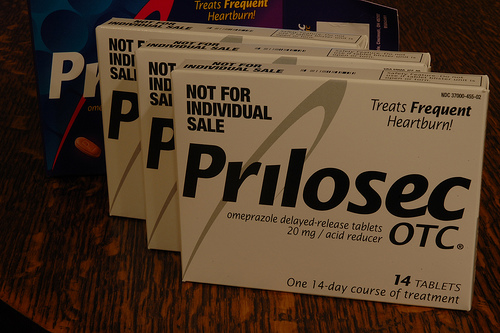
Medications For Heartburn
If you live in the United States and you watch TV, you have seen dozens or even hundreds of commercials for the "little purple pill" called Nexium (esomeprazole). Along with Prilosec (omeprazole) and Prevacid (lansoprazol), it is one of the more commonly used proton pump inhibitors, drugs that stop the stomach from secreting stomach acid. Heartburn and GERD are also treated with H2 receptor blockers, medications that stop the sequence of steps that tells the stomach it's time to release acid, such as Axid (nizatidine), Pepcid (famotidine), Tagamet (cimetidine), and Zantac (ranitidine). There also pro-kinetic drugs that encourage the stomach to send digested food and acid down, instead of up, and a variety of over-the-counter antacids that neutralize stomach at the source. All of these products, however, interfere with the normal digestion of food. In particular, heartburn medications interfere with the absorption of calcium, and increase the risk of osteoporosis.
- Important notification about information and brand names used in this slideshow!
- Photo courtesy of John by Flickr : www.flickr.com/photos/cygnus921/2320090008/
- Yang YX, Lewis JD, Epstein S, Metz DC. Long-term proton pump inhibitor therapy and risk of hip fracture. JAMA. Dec 27 2006. 296(24):2947-53.
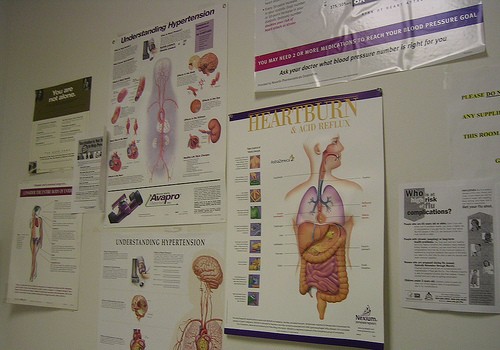
Diagnosing Heartburn
Most people know when they have heartburn--and most people don't go to the doctor for diagnosis and treatment. A doctor will take time to do a differential diagnosis to make sure the symptoms of heartburn aren't really something else, especially if they involve chest pain. Different treatments work better when the underlying problem is gastroparesis, a "slow stomach" disease in which acid backs up from the stomach because the nerves that help the stomach empty into the lower digestive tract don't work. This condition is usually caused by diabetes. There are also cases of asthma that mimic heartburn, and treating asthma relieves the heartburn symptoms rather than the other way around. Hearburn may also start in pregnancy and go away when the baby is born.
- Important notification about information and brand names used in this slideshow!
- Photo courtesy of A.Currell by Flickr : www.flickr.com/photos/23748404@N00/54122601/
- DeVault KR, Castell DO. Updated guidelines for the diagnosis and treatment of gastroesophageal reflux disease. Am J Gastroenterol. Jan 2005.100(1):190-200.

Is There A Difference Between GERD And Heartburn?
GERD, or gastroesophageal disease, and heartburn are not quite the same thing. Everyone who has heartburn has GERD, but not everyone has GERD has heartburn. In a few people, GERD doesn't cause painful secretion of acid into the throat. The leakage is slower, mostly at night, and mostly causes a variety of symptoms that mimic other conditions. Someone who has GERD without heartburn might wake up hoarse every morning, but feel OK by the middle of the morning. Or he or she might have a predilection for asthma attacks after meals, or bad breath that just won't go away with mouthwash or brushing teeth. All of these people have GERD. Treating GERD helps heartburn, and vice versa.
- Important notification about information and brand names used in this slideshow!
- Photo courtesy of U.S. Navy photo by Mass Communication Specialist 2nd Class Joshua Valcarcel by Wikimedia Commons : commons.wikimedia.org/wiki/File%3AUS_Navy_090715-N-9689V-008_Republic_of_Singapore_Navy_Maj._Boon_Hor_Ho_examines_a_local_man_suffe
- www.health24.com/Medical/Heartburn/Faqs/What-is-the-difference-between-GORD-and-heartburn-20120721
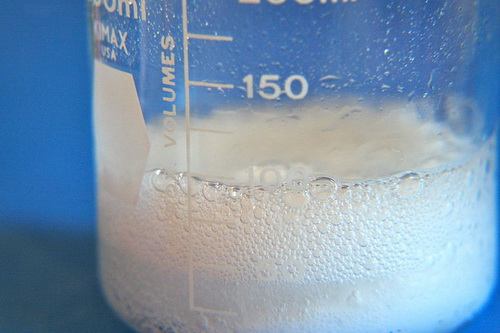
Natural Home Remedies
Most of the home remedies for heartburn focus on neutralizing stomach acid before it has a chance to rise into the throat. Simply adding a teaspoon (about 3 grams) of bicarbonate of soda into a cup (240 ml) of water is an effective remedy. Other people will want to chew Tums or Rolaids, which use calcium compounds to neutralize stomach acids. The advantage of these over the counter remedies is that they add calcium to the diet, and partially compensate for the calcium lost by neutralizing stomach acids. Anything that neutralizes acid or stops the production of stomach acid, however, increases the risk of nutritional deficiencies, particularly calcium and magnesium.

Proper Diet
The best way to fight heartburn is with diet. "Hot foods" really aren't the problem. Too much food usually is. If you get heartburn after you eat a whole pizza with red peppers, the problem isn't the peppers. It's the pizza. If you eat until you are stuffed, stomach acid may have no place to go but up into your throat. Lying down immediately after a meal makes the problem even worse. Some recent research has found that peppers that contain a chemical called capsaicin actually relieve heartburn pain (in the same way they relieve joint and muscle pain, by "distracting" the nervous system). Foods that contain chemicals that relax the lower esophageal sphincter so it is less likely to hold acid, however, should be minimized or avoided. This means cutting out or at least reducing chocolate, coffee, and alcohol. Some experts also advise eliminating citrus fruit, citrus juices, onions, and foods that contain peppermint, although just smelling peppermint or chewing mint gum is OK.

Who's At Risk For Heartburn?
Anybody can get heartburn. Male and female, young and old, and people of all races are at risk for the disease. Esophagitis, or chronic inflammation of the esophagus, is more common in women than in men, by a ratio of 3 to 2, but Barrett esophagus, the replacement of healthy cells with potentially cancerous cells in the esophagus, is 10 times more common in men than in women. Barrett esophagus is especially common in men of European ancestry. People who are over 40 are more likely to see their doctors for treatment. Acid reflux is not unusual in babies, but most infants outgrow the condition by the age of 18 months.

Lifestyle Changes
Certain simply lifestyle changes also reduce the severity of heartburn and GERD. If you usually take a nap after a meal, don't, or at least don't lie down to take it. Lying flat on your back when your stomach is generating acid to digest food makes it hard for your lower esophageal sphincter to stay shut and keep acid in your stomach. Wait at least three hours after you eat before you lie down. If nighttime heartburn is a problem, it can help to prop up with pillows or to elevate the end of the bed where you lay your head. You'll need to elevate both sides of the bed underneath your heat about 8 inches (20 cm) to keep acid down. It's also always a good idea to eat less. Eating smaller meals means your stomach makes less acid and empties faster, keeping acid out of your throat.
- Important notification about information and brand names used in this slideshow!
- Photo courtesy of misocrazy by Flickr : www.flickr.com/photos/misocrazy/38159823/















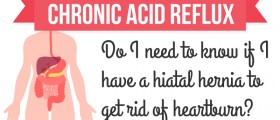


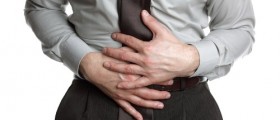




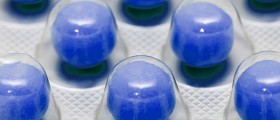
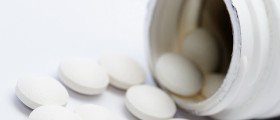
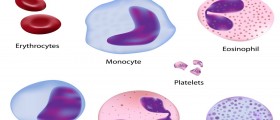
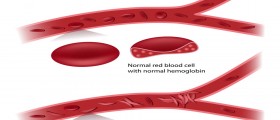
Your thoughts on this
Loading...